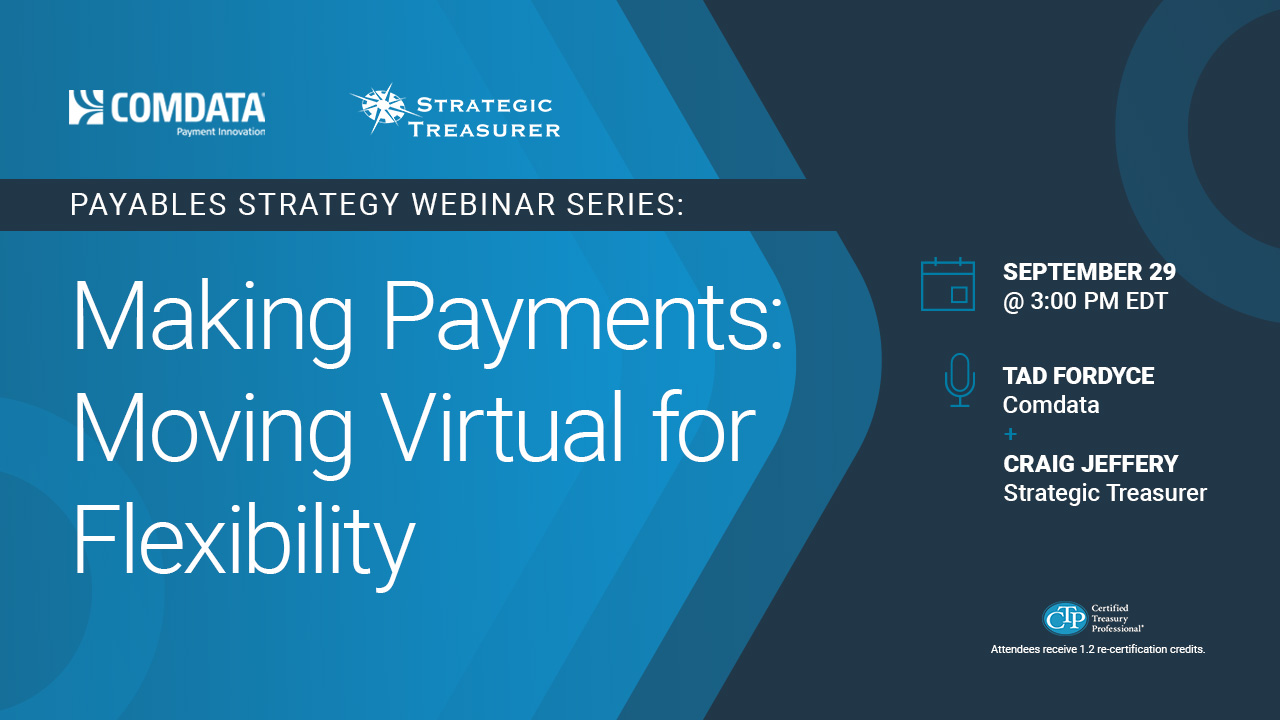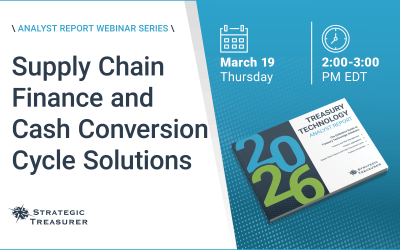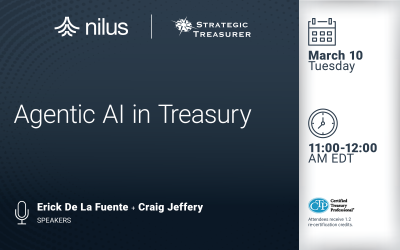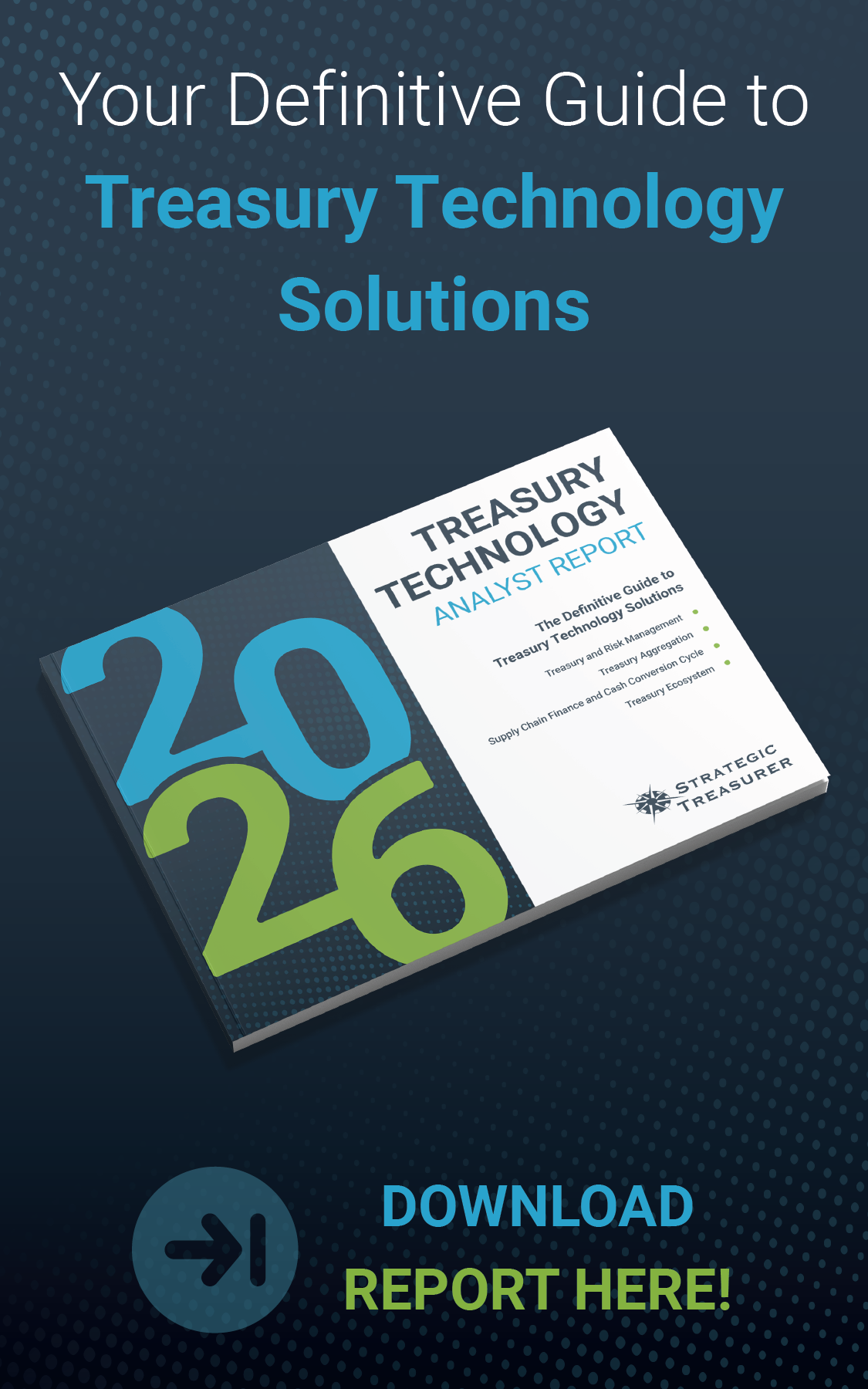Join Craig Jeffery of Strategic Treasurer and Tad Fordyce of Comdata for a webinar on how virtualization functionally works to streamline the payment process, allowing your finance group to scale and adapt in a highly flexible manner.
Making Payments: Moving Virtual for Flexibility Webinar
Date: Tuesday, September 29, 2020
Time: 3:00 PM – 4:00 PM ET
Where: This is an online event.
Sure, making payments by card seems like it could be useful in some cases. But, very few think that card allows a company to increase flexibility. There can be a substantial concern that using card can make your payment process fragmented and more difficult. That seems to be opposite of flexible. To understand this properly we need to be more specific in defining our terms.
‘Fixed’ card numbers and ‘Virtual’ card processes have a significantly different methodology. Many are familiar with how Virtualization (using virtual card numbers) provides improved security over physical and Ghost cards. Few understand the application of virtualization as a way to add flexibility and value into the AP process.
This session will cover how virtualization functionally works to streamline the process, allowing your finance group to scale and adapt in a highly flexible manner.
If you encounter any issues with this webinar replay, please contact our team.
Download the webinar deck here:
Check back soon for the replay and presentation deck.
You may also be interested in:
Webinar: Supply Chain Finance and Cash Conversion Cycle Solutions | March 19
This webinar will examine the evolving role of SCF and CCC platforms in managing liquidity, automating key processes, and strengthening supply chains. Attendees will gain perspective on market trends and technology advancements that help treasury and finance teams enhance visibility, accelerate cash flow, and build resilience across the supply chain.
Webinar: Agentic AI in Treasury | March 10
Artificial intelligence is already impacting treasury, from machine learning that detects patterns to generative AI that creates content and analysis. Agentic AI represents the next step, using specialized agents to complete tasks rather than simply present information. This webinar will explore how agentic AI works in treasury, how agents are created and deployed, and how they differ from traditional dashboards in solving visibility challenges and executing necessary actions. Attendees will leave with a clearer perspective on when and how agent-based approaches can add meaningful value to treasury operations.
#398 – Why Treasury Projects Stall and How to Restart Them
In this episode, Paul Galloway of Strategic Treasurer discusses why treasury projects stall internally. He explores common causes such as scope creep, system connectivity challenges, competing priorities, staffing changes, and M&A activity. The discussion also outlines how stalled initiatives should be framed with executives and what it takes to successfully restart a paused project.







